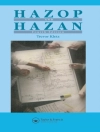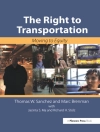This book presents an assessment of endeavors towards Financial Inclusion and its role in Sustainable development. An attractive feature is that it deals with almost all the contemporary issues essential for reaching UN Sustainable Development Goals. This book would be an exclusive and authentic source to the students of undergraduates, postgraduates and professional courses in Commerce and Management. This manuscript is divided into nine chapters.
The book looks at various salient topics, including financial inclusion measurement, the impact of various financial inclusion indicators on development outcomes and macroeconomic volatility using aggregate data, and the effects of financial inclusion on poverty and development outcomes using microdata. Using the recently adopted Sustainable Development Goals as an overall framing of the issues, it exhibits how poor and disadvantaged women and men can be bankable if the adequate facilitation for maximizing opportunities and addressing constraints. This book attempts to cover different dimensions of Financial Inclusion towards attaining Sustainability and Circular Economy through financing instruments and investments. This book highlights different goals of UN SDG as an Initiative towards Inclusive Growth and Circular Economy, which is also influenced by Micro Finance Institutions and NBFCs.
This book will be an indispensable source for the Students of PG and UG programs, Researchers and practitioners from areas of Commerce, Economics and Management and the faculty members and professionals like bankers and financial consultants. We hope this book will meet the requirement of all the categories of readers.
Jadual kandungan
Chapter 1. Sustainable Development Goals – An Initiative towards Inclusive Growth and Circular Economy.- Chapter 2. Key Drivers and Challenges for Financial Inclusion.- Chapter 3. Socio-Economic Impact of Financial Inclusion.- Chapter 4. Financial Literacy for promoting Sustainability.- Chapter 5. Financial Capability and Financial Well-Being for a Sustainable Society.- Chapter 6. Expanding Financial Inclusion through Fintech and E-Governance.- Chapter 7. Financial Inclusion for Empowering Women – Way ahead.- Chapter 8. MFIs and NBFCs Contributions towards Financial Inclusion and Circular Economy.- Chapter 9. Financial Sector Governance Policies and Regulations.
Mengenai Pengarang
Vinay Kandpal holds a Ph.D. in Management from the Department of Management Studies, Kumaun University, Nainital, Uttarakhand, India. He is an honours graduate in Commerce from the University of Calcutta and obtained his MBA with dual specialization in Finance and Marketing. He is pursuing his DLitt from the Kumaun University Nainital, India on a study of social and economic implications of financial inclusion in Uttarakhand. He is an Assistant Professor in the Department of General Management, School of Business, University of Petroleum and Energy Studies, Dehradun, Uttarakhand, India. He has over 17 years of experience in academics. He has published more than 40 research papers and 10 book chapters in banking, digitalization, smart cities, infrastructure financing, CSR, corporate governance, fintech and infrastructure finance in leading refereed and indexed journals.
Deep Chandra is an experienced banker turned academician, retired as a Vice President from Nainital Bank Ltd., after serving the bank for 33 years. He is working with Amrapali Group of Institutions, Haldwani, Uttarakhand, India as an Associate Professor for the last 5 years. He has exhibited the ability of people management, business development and public relations throughout the service tenure and presently imparts practical knowledge to management students. He is M. Sc. (Statistics), MBA and Ph.D. in Finance. He is also a Certificated Associate of the Indian Institute of Banking and Finance.
Narendra N. Dalei obtained a Ph.D. from University of Delhi in the area of Ecological and Environmental Economics in 2012 and completed Certificate of Proficiency in “Climate Action: Solutions for a Changing Planet” from UN’s SDG Academy. Currently, Dr. Dalei is working as the Head and the founding member of the Centre for Energy, Environment, and Sustainability Studies and Assistant Professor (SG) at the School of Business, University of Petroleum and Energy Studies (UPES), Dehradun, India. Dr. Dalei is life member of Indian Society for Ecological Economics, The Indian Econometric Society, and International Society for Ecological Economics. Prior to joining UPES, Dr. Dalei worked in various positions at University of Delhi and its Constituents colleges, IGNOU, FICCI, Zenith Energy and NSSO, MOSPI, Govt. of India. He has published more than 50 research papers in national and international journal of repute and contributed more than 15 book chapters to his credit in the areas of economics, ecological economics, energy and environment; presented papers in more than 15 national and international conferences. He is the editor of the Book titled, “Energy, Environment and Globalization” published by Springer Nature in 2020. Dr. Dalei received outstanding reviewer award in 2015 and in 2017 from Energy Policy, Elsevier, Amsterdam, The Netherlands. He received Best Research Paper Presentation Award 2018 from 20th International Conference on Climate Change and Global Warming (29th to 30th October) held at Paris, France. Currently, Dr. Dalei is editing one book titled, ECONOMICS AND POLICY OF ENERGY AND ENVIRONMENTAL SUSTAINABILITY which will be published by Springer Nature.
Jatinder Handoo is a Vice President at Microfinance Institutions Network (MFIN) – an RBI recognized Self-Regulatory Organisation for NBFC-MFIs in India. He has earned over 15 years of experience in retail banking, microfinance, public policy and agency banking within and outside of India. He is pursuing Ph.D. in Economics & Public Policy at IIM Shillong. He has completed a Master’s in Public Policy from IBS Hyderabad and is an alumnus of IIM Udaipur- Sanford School of Public Policy – Duke University, USA. He has completed PGP in Digital Money at The Fletcher School of Law and Diplomacy at Tufts University, USA. A case study on Branchless Banking in India co-authored by him is listed on the Harvard Business School Publishing Centre. He has attended various International Conferences on different topics like Microfinance, MSME and Housing Finance.












